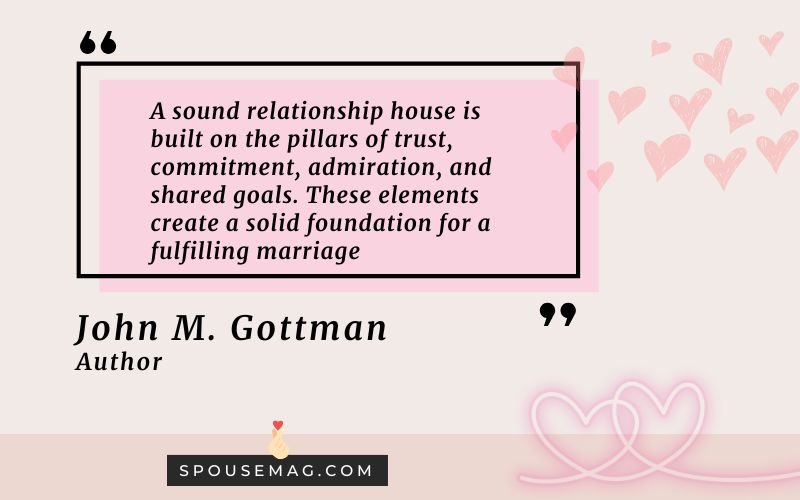
I loved “Ten Lessons to Transform Your Marriage.” This book isn’t just about fixing problems; it’s about building and nurturing a relationship that can withstand the ups and downs of life.
It covers everything from avoiding destructive communication patterns to creating a shared sense of purpose and meaning. The Gottmans highlight the significance of small, everyday interactions—such as connection bids, repair attempts, and daily expressions of love—while focusing on the broader aspects of emotional attunement and shared dreams.
Click here to get your book today!
The Four Horsemen of the Apocalypse
One of the core concepts the authors introduce is the Four Horsemen of the Apocalypse: criticism, contempt, defensiveness, and stonewalling. These toxic behaviors, if left unchecked, can slowly destroy a marriage.
Criticism is when complaints become personal attacks, turning a specific issue into a broader character flaw. Contempt, often seen as the most destructive, involves sarcasm, mockery, and disrespect, conveying a sense of superiority. Defensiveness is when partners deflect blame, refusing to take responsibility, and stonewalling happens when one partner withdraws entirely, shutting down communication.
Critique: Criticism and Defensiveness Can Be Tools for Growth
While Gottman’s identification of criticism, contempt, defensiveness, and stonewalling as destructive communication patterns is widely recognized, I think these behaviors are not always inherently negative. For instance, constructive criticism is a valuable tool for growth and improvement, as long as it is delivered respectfully and helps.
The Bid for Connection
Gottman highlights the importance of “bids for connection”—those small, everyday gestures where one partner seeks attention, affirmation, and affection from the other. How partners respond to these bids significantly impacts the emotional climate of the relationship. Turning toward these bids cultivates intimacy and connection while ignoring them creates distance.
I recall a couple who came to me on the verge of separation, not due to frequent fights but a deep disconnect. They were constantly missing each other’s bids. She’d suggest watching a movie together, and he’d be too caught up in work to respond.
Critique: Overemphasis on Bids for Connection
I think that the Bid for Connection is overemphasized. It’s important to strike a balance between being responsive and maintaining personal boundaries. Overly attentive behavior sometimes feels suffocating.
The Sound Relationship House
The “Sound Relationship House” is a metaphor for building a strong marriage on a foundation of trust and commitment, with walls supported by admiration, affection, and shared goals. This model emphasizes the importance of having a solid foundation and ongoing maintenance to ensure the relationship remains strong.
When my spouse and I were navigating a particularly stressful period due to financial challenges, our shared commitment to each other and our future helped us stay focused on problem-solving rather than blaming one another.
Critique: Overlooked Limits of the Sound Relationship House Model
While the Sound Relationship House provides a comprehensive framework, it appears overly idealistic. Real-life relationships often face challenges that shake even the strongest foundation. The model also assumes that all couples have similar needs for trust, commitment, and shared goals, which is not true. Different couples prioritize different aspects of the foundation based on their individual needs and values.

The Flooding Response
Gottman introduces the concept of “flooding”—a state of emotional overwhelm where a partner’s stress response is triggered, leading to an inability to communicate effectively. Recognizing when either partner is flooded and taking a break helps prevent escalation and allows for a calmer, more rational discussion later.
I remember a heated argument with my husband over a family issue. I became so overwhelmed that I wanted to leave. Thankfully, he suggested we take a break and go for a walk, which helped us cool down and return with clearer heads.
Critique: Overlooked Approaches to Managing Stress Without Always Taking Break
Understanding the Flooding Response is crucial for navigating difficult times. However, instead of always taking a break, couples should learn to recognize and manage their physiological responses to stress. This involves practicing mindfulness and other relaxation techniques that can be used during the conversation, allowing them to stay present and engaged without becoming overwhelmed.
The Emotional Attunement
Emotional attunement is all about being in sync with your partner’s emotional needs—listening, empathizing, and responding in a way that makes them feel understood. Gottman asserts that this is essential for building a strong, lasting connection. When partners are emotionally aligned, they navigate the ups and downs of life together with a deeper sense of unity and understanding.
Over the years, my spouse and I have developed a strong emotional connection. After a work setback, I was feeling low, and without me saying much, my wife sensed it. She comforted me with my favorite meal and quietly sat with me, offering support.
Critique: Overlooked Challenge of Emotional Attunement
While emotional attunement is undeniably important, it is also incredibly demanding. Constantly trying to attune to your partner’s emotional state leads to emotional fatigue, especially if one partner is more emotionally expressive or needs more support. This creates an imbalance where one partner feels overwhelmed by the emotional needs of the other. the book doesn’t fully address how to develop these skills for those who struggle with them.
The Positive Sentiment Override
Gottman’s “Positive Sentiment Override” is about cultivating an emotional buffer that allows positive interactions to outweigh negative ones. In relationships with a strong PSO, couples are more likely to give each other the benefit of the doubt during conflicts and focus on the good in their partner, which helps them navigate challenges with greater resilience.
One of the most important things I learned from this section was the power of gratitude. When you focus on the things that you’re grateful for in your relationship, it can help to shift your perspective and create a more positive atmosphere.
Critique: Neglected Risks of PSO in Relationships
While PSO is a powerful tool for maintaining a positive relationship dynamic, it can also lead to denial or avoidance of real issues. If partners are too focused on maintaining a positive outlook, they might overlook or downplay problems that need to be addressed. There’s also the concern that an overemphasis on positivity could lead to a sense of complacency, where couples become too comfortable and stop putting in the necessary work to address challenges and grow together.
Why Should You Read Ten Lessons to Transform Your Marriage?
If you’re looking to deepen your connection with your partner and create a more fulfilling marriage, Ten Lessons to Transform Your Marriage is a must-read.
Here are some reasons why you should consider reading this book:
- The book empowers couples to take control of their relationship and create a more fulfilling future together.
- The authors offer practical tips and exercises that you can implement in your relationship.
- The book offers valuable insights into the dynamics of relationships, helping you to better understand yourself and your partner.
- John Gottman is a renowned relationship expert, and his insights are invaluable for couples seeking to strengthen their bond.
Readers’ Thoughts About Ten Lessons to Transform Your Marriage?
Ten Lessons to Transform Your Marriage has received widespread praise from readers, who have found it insightful, practical, and empowering.
Lisa, Teacher: “I found the book very relatable and insightful. It helped me understand my partner’s perspective and appreciate our relationship more.”
Johnson, Couples Therapist: “The Gottmans have distilled decades of research into practical, actionable steps that can truly transform relationships. This book is a goldmine for therapists and couples alike.”
Emily Carter, Marriage and Family Counselor: “What I love about this book is its emphasis on proactive relationship-building rather than just fixing problems. The Gottmans offer a hopeful and constructive approach that encourages couples to focus on strengthening their connection.”
Here’s a look at some of the negative feedback:
Dr. Amanda Brooks, Clinical Psychologist: “While the book offers great advice, I wish it had addressed more diverse relationship dynamics and cultural backgrounds.”
Mary Bennett, Family Therapist: “The focus on positive sentiment and repair attempts is valuable, but the book occasionally oversimplifies the complexity of emotional responses and communication patterns.“
Ratings and Recommendation
Ten Lessons to Transform Your Marriage is highly recommended for couples looking to strengthen communication, build emotional connections, and foster a positive relationship climate. The book’s strengths lie in its accessible writing, actionable strategies, and the Gottmans’ extensive research into marital success.
- Amazon: 4.6 stars (based on thousands of reviews)
- Goodreads: 4.08 stars (based on over 560 reviews)
- Barnes & Noble: 4.6 stars (based on customer ratings)
How Long Will It Take to Read Ten Lessons to Transform Your Marriage?
The time it takes to read Ten Lessons to Transform Your Marriage can vary depending on your reading speed and how deeply you engage with the material. The book is around 272 pages long. For the average reader, who reads about 250-300 words per minute, it would typically take around 8-10 hours to read the entire book.
Final Word
Gottman’s principles offer a framework for strengthening relationships through understanding and addressing key dynamics. The concepts of the Four Horsemen, bids for connection, repair attempts, and emotional attunement provide valuable tools for developing intimacy and resolving conflicts.
By integrating these practices thoughtfully, couples can build a stronger, more connected partnership.

As a married wife, founder, and editor of SpouseMag.com – these guides are based on my own personal experiences, observations, research and insights. I am transparent about being inspired by the life and work of the two greatest experts in the relationship space – Dr. John and Julia Gottman, and Harville and Helen. They two are some of the strongest couples, researchers, authors, and counselors when it comes to marriage and relationships. My advice and guides are based on my insights and research, and they are not an alternative to professional advice.





